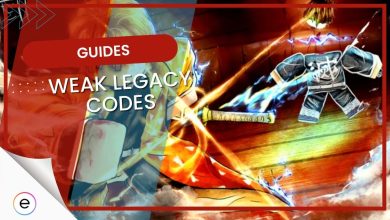Video game adaptations have existed since the 1990s, as gamers really wanted to see their favorite 2D sprites from the games come to life. However, when you look back at any live-action adaptation of video games, you’d notice that they are, to be frank, terrible.
It’s fairly understandable that the live-action adaptations from the 90s were underwhelming. Gaming has always been home to special effects and movements that were difficult to portray with the technology back then.
But live-action adaptations that came out in recent years haven’t been any good either. The recent live-action Netflix adaptation of Resident Evil was canceled after the first season.
Mortal Kombat (2021) was a decent effort at live-action adaptations. It received mixed reviews and an average score on IMDb. But, from a fan’s point of view, the movie was alright because we never expected much from it, to begin with. Uncharted live-action adaptation was also quite mediocre at best.
Despite live-action adaptations of video games not doing exceptionally well at the box office, why do video game companies keep making them?
Now, let’s take a look at animated adaptations. Animated video game adaptations have done considerably better than their live-action counterparts. The recent Cyberpunk Edgerunners series is evidence of that. The Cyberpunk 2077 animated series managed to revive the game, and it is now doing better than ever.
Cyberpunk 2077 adaptation isn’t the only well-received animated adaptation of a video game out there. The League of Legends Arcane, Castlevania, DotA: Dragon Blood, Tekken Bloodline, and the hype for the upcoming Mario movie prove that animated adaptations do much better than live-action adaptations.
Animated adaptations have an edge to themselves over video game adaptations. That’s because animated adaptations can depict the characters and their movements more accurately than live-action adaptations, thanks to CGI.
CGI is a sensitive topic when it comes to adaptations. Many people dislike the look of CGI animated shows and movies. However, the cinematic trailers are also sometimes based on CGI, and the fans end up loving those.
I mean, look at the Assassin’s Creed trailers. Wouldn’t you love seeing a whole movie or even a small series based on that cinematics?

It’s true that budget is sometimes an issue, but these companies are no small names. If they can hire actors like Tom Holland for their movies, they can obviously afford a 5-6 episode CGI series that is faithful to the source material.
A movie that did it nicely in the past was Final Fantasy 7: Advent Children. While the game itself was just triangles and squares in terms of graphics on the PlayStation 1, the movie was quite something else. Indeed, the movie’s story was quite messed up and trash, but the animation was on point for a video game adaptation in the 2000s.

Video game companies have their hands on everything from voice actor talent to motion capture technology. The stories are also quite good, then why would they go and make a live-action movie or series that their primary audience doesn’t care about?
Remember those WoW cinematics from Blizzard back in the day? Those looked excellent, then they made a live-action adaptation of the series.
That made the fans wonder what exactly Blizzard thought when they came up with the idea of a live-action adaptation. But the live-action World of Warcraft movie is one of the very few good live-action adaptations of video games and received a decent audience score.
It’s not just about the visuals. The story is also quite horrible at times in these adaptations. Video game companies should realize that they need to up their storytelling.
The type of world-building that takes 12-20 hours in a video game won’t work in a 2-hour movie. If you want to attract a new audience to the IP, you have to explain to the audience what is going on and how it is going on.
In conclusion, video game adaptations still need to work a lot on storytelling. Even a live-action adaptation of a video game might become enjoyable when paired with a decent enough story.
Video game companies should learn what makes their animated adaptations successful. And implement those elements in their live-action adaptations if they’re so hell-bent on making live-action adaptations of their video games.
Thanks! Do share your feedback with us. ⚡
How can we make this post better? Your help would be appreciated. ✍



